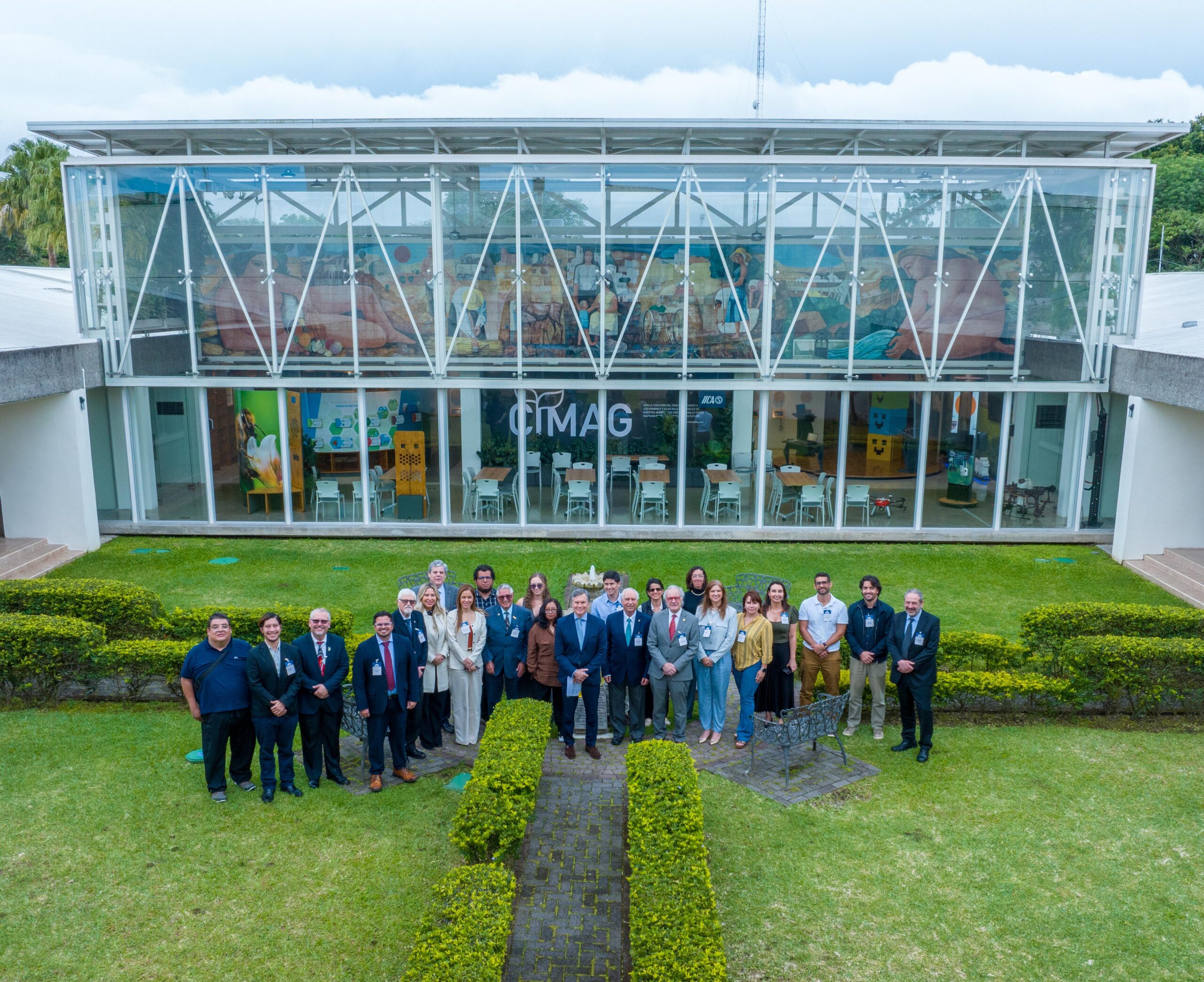IICA’s participation in the topic was considered relevant by the most important academics in veterinary sciences from the Ibero-American countries, who met at the Institute’s headquarters in San José, Costa Rica, at a conference organized by the Ibero-American Association of Academies of Veterinary Sciences (AIACIVET).

San José, July 17, 2024 (IICA) – The Inter-American Institute for Cooperation on Agriculture (IICA) will collaborate in disseminating knowledge and technologies for implementing good agricultural practices to address the challenges of antimicrobial resistance (AMR), under the One Health approach.
This is a crucial issue from both health and environmental perspectives, as antimicrobial resistance has been identified by the World Health Organization (WHO) as a global threat to people, animals, plants, food, and the environment.
The involvement of IICA in this matter was considered significant by the leading veterinary science academics from Ibero-American countries, who met at the Institute’s headquarters in San José, Costa Rica, at a congress organized by the Ibero-American Association of Veterinary Science Academies (AIACIVET).
At the end of the seminar, AIACIVET and IICA authorities agreed to sign a cooperation agreement between the two institutions to formalize their joint efforts.
“This is a fundamental issue, so we must not delay the task of reciprocal collaboration,” said Arturo Anadón, Permanent Secretary General of AIACIVET, at the closing of the event.
For his part, IICA Director General Manuel Otero, a member of the National Academy of Agronomy and Veterinary Medicine of Argentina for his vision of continental agricultural policy, stated, “I accept the challenge of the agreement. This is an institution that has set aside bureaucracy. We have to do it because the nature and importance of the issues are such that we cannot delay.”
National Academies are dedicated to sheltering, promoting, and facilitating the development of science and the arts. Their members engage in intellectual activities related to their respective scientific specialties and address issues of interest to the national and international community.
Over two days, veterinary science experts analyzed the challenges of Antimicrobial Resistance (AMR) under the One Health Approach and gathered experiences from various countries on the matter.
The event brought together, both in-person and virtually, members of the institution, special guests from universities and centers of excellence committed to the topic, and representatives of international organizations and governments.
During the sessions, it was emphasized that good agricultural practices are essential for preserving the health of people, animals, and ecosystems, which must be considered integrally and unified. It was noted that antibiotics should be used in agricultural activities as necessary but as sparingly as possible, and rural populations should be specially protected due to their close contact with the environment.
In the final declaration, participants recognized the need to work together to mitigate, prevent, and control antimicrobial resistance and incorporate the topic of antimicrobial resistance under the One Health approach.
They also noted that the academy could collaborate with official sectors within their comprehensive antimicrobial resistance surveillance systems, supporting and working on the diagnosis and analysis of surveillance results throughout the agri-food chain.
Good Practices Are Essential
In one of the event’s panels, which addressed collaborative work between the academy and the official sector, it was noted that sustainable food production is key to combating antimicrobial resistance and that good practices are essential in livestock health management.
“IICA can create a work plan for Latin America and the Caribbean, which will guide the effective and proper use of antibiotics,” said Armando Hoet, Director of the Veterinary Public Health Program at Ohio State University.
Hoet stated that “IICA has taken the lead in the region to help countries develop their antimicrobial resistance surveillance systems from farm to table when virtually no organization or other groups had initiated that conversation.”
Federico Fernández from the National Veterinary Academy of Uruguay (ANV) noted that IICA has “the capacity to organize events, and its convening power would help the agricultural sector promote the correct use of antimicrobials. Workshops can be held on this topic and more specific ones; it is important to mobilize resources to bring this knowledge to countries.”
Ericka Calderón, Animal Health and Food Safety Specialist at IICA, stated that from the agricultural activity perspective, the mission is to minimize the impact of antimicrobial resistance on animal production, as it immediately negatively impacts countries’ economies.
“Meat is the primary source of protein consumption in our countries, and the issue also affects international trade,” she said.
Heylin Fernández from Costa Rica’s National Animal Health Service (SENASA) emphasized the importance of joint work between the private sector, public sector, academia, and consumers. “The problem is identified, and no battle is won alone; we must organize and have hope if we work together,” she pointed out.

Agreement with the University of Asunción
During the seminar, the Faculty of Veterinary Sciences of the National University of Asunción in Paraguay and IICA signed a framework agreement for technical, academic, and scientific collaboration for developing and implementing programs, projects, and plans related to teaching, research, and extension activities.
The agreement was signed by Dean Viviana Ríos Morinigo and IICA Director General Manuel Otero, who explained that IICA would collaborate so that the Faculty of Veterinary Sciences in the Paraguayan capital would have a center of excellence where future veterinarians can become aware of the new frontier of knowledge for the benefit of the Paraguayan people.
Ríos Morinigo, in turn, thanked IICA for its work in Paraguay. “I believe that much of our country’s agricultural development is due to the technical work and support of IICA. It will be an honor and a pleasure to have you with us on campus and an opportunity to have a very important development center for a predominantly agricultural and livestock country like Paraguay,” she stated.
More information:
Institutional Communication Division.
comunicacion.institucional@iica.int











